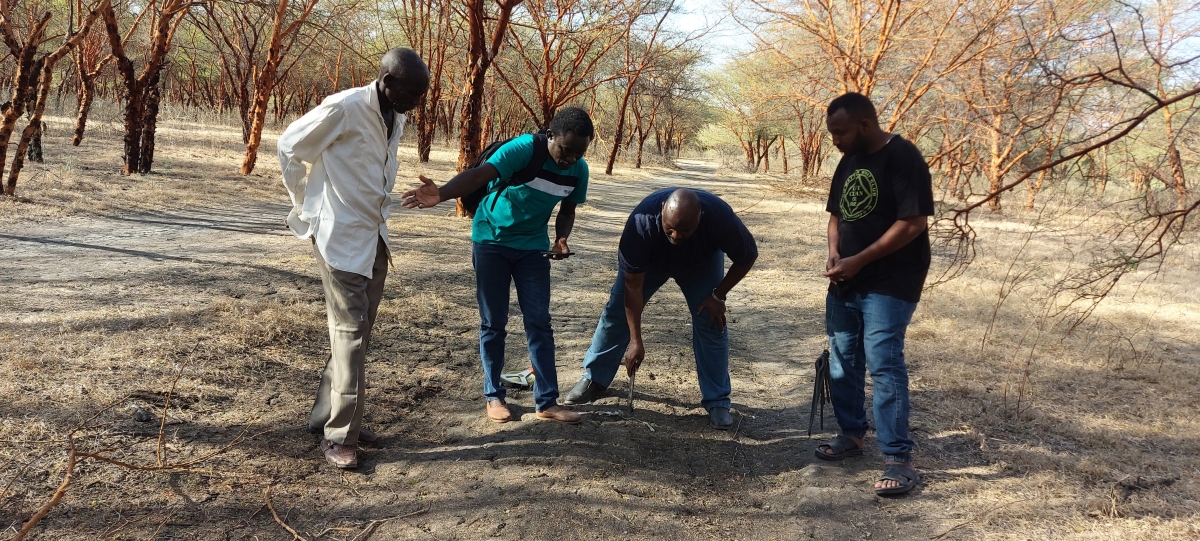You are here
Bullard Spotlight: Dr. Ahmed Siddig Sets Up New LTER Site & Mentors Students in Conflict-Affected Sudan

We are thrilled to host Dr. Ahmed Siddig as one of our Charles Bullard Fellows in Forest Research for the 2023-2024 year. Dr. Siddig, Associate Professor of Ecology and Environmental Conservation at the University of Khartoum, is interested in understanding global change ecology, development & running of ecological monitoring programs, and biodiversity conservation. As Bullard Fellow for 2023/2024, Dr. Siddig is focusing on three projects.

First, establishing a pilot for Long-Term Ecological Research (LTER) plots and assessing forest tree diversity & conservation status in conflict-affected areas of Sudan. Forest resources in Sudan are interestingly diverse and significant to the livelihoods of millions of people there. However, these vital ecosystems suffer continuous decline and degradation due to human pressures and climate change as well as governance issues and lack of funds for protection. This project is implemented through ground data collection, remote sensing technology, and social survey methods. Overall, the findings are expected to not only improve our understanding about the diversity and conservation status of forest trees in dry land Sudan, but also highlight the drivers of forest degradation as related to the armed conflicts and unrest. Moreover, considerable capacity building for forest stakeholders (e.g., government, NGOs, academia) will be achieved through conducting a workshop about the value of monitoring ecological changes in dry lands and how LTER plots can be a key direction.
Second, Dr. Siddig is revisiting the salamander monitoring project that he worked on ten years ago at Harvard Forest to assess population changes in the declining hemlock forests of New England. Salamanders are important creatures in the forested ecosystems and play a significant role in their food web. Therefore, detecting changes in salamander populations will not only reflect the health of these populations but will also have direct implications for a whole ecosystem trend and direction given that they are classified as indicator species. This project will be part of the Harvard Forest Summer Research Program in Ecology in which Dr. Siddig will mentor one of the participating students.
Third, with generous support from the Arab-German Young Academy (AGYA) of Science & Humanities, Dr. Siddig will also continue working on supporting young scientists of Sudan in response to the current crises in the country through his Academic Inspiration & Mentoring (AIM) project. During his time at Harvard Forest, AIM project will conduct several workshops covering topics such as surviving impacts of war on research careers, research planning in times of crises, and Scientists as Peacemakers.
Above, Dr. Siddig discusses plot layouts and work plans with his research team in Naura Reserved Forest, Sudan. Many thanks to Dr. Siddig for providing this succinct synposis of his work, including photographs.

